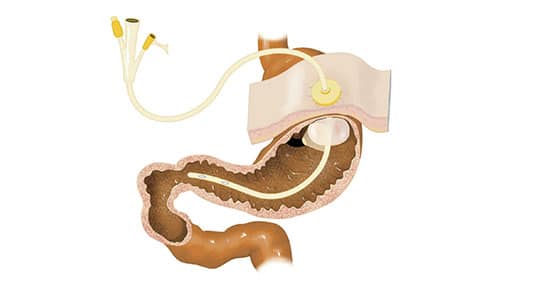
Do kids with autism have leaky guts?
Revealing research on GI problems of kids with autism
-
Parents of kids with autism are understandably concerned
- These children seem to be having a lot of stomach complaints, with pain, diarrhea or constipation
- Kids with autism often aren't able to communicate those complaints clearly
- There's concern that kids with autism may have "leaky gut," where food proteins and substances enter the body through the intestine (which they wouldn't do where the intestine's healthy). Those substances (particularly gluten and milk casein) then create a change in behavior, presumably by affecting the nervous system.
In order to address those concerns, Dr. Kushak and others (J Ped Gastro Nutri) compared 61 kids with autism spectrum disorder and 50 kids with normal development, who were to have endoscopy as part of their evaluation for GI (gastrointestinal) problems (mostly abdominal pain or diarrhea). They compared them for:
- What their upper endoscopies and colonoscopies looked like
- What their biopsies looked like under the microscope
- Evidence of lactose intolerance and other problems of sugar digestion
- Evidence of a leaky gut (medically called intestinal permeability)
- Evidence of inflammation (with stool tests for calprotectin)
The findings
A number of children with autism spectrum disorders had abnormalities—but about the same rate as the other kids. But of course, you have to remember that the children in both groups had gone to be evaluated because they seemed to be having intestinal problems.
Endoscopies and biopsies
- In the autism group, 32 (52%) had inflammation somewhere in their GI tract, "but it was generally mild and not diagnostic." 5 had features of reflux, 2 had eosinophilic esophagitis (EoE); 12 (19%) had mild colonic inflammation and 3 (5%) with inflammation in the last part of the small intestine. None had celiac disease or H pylori.
- In the non-ASD group, 4 (8%) had EoE; 4 (8%) had inflammation in the small intestine, and 9 (18%) had colonic inflammation. The authors found Crohn's disease in three and a total of five children with IBD.
Intestinal inflammation
- The authors used a level of calprotectin to detect the slightest abnormality (over 50) In the autism group, 31of 49 (63%) had this level compared with 19 of 31 (61%) in the other group.
- Most others consider a level of over 150 as more meaningful. Using that level, 9 of 49 (18%) in the autism group had inflammation and 8 of 31 (26%) in the other group did as well.
Lactose intolerance
- About 65% of the children in both groups had low levels of the enzyme that digests lactose and causes lactose intolerance. This is similar to other studies showing that this is a very common and often unrecognized problem.
Intestinal permeability (the leaky gut)
- There were no significant differences in the tests for permeability in the 2 groups.
Bottom line
Thank goodness, children with autism spectrum disorders don't seem to have more GI issues than other children. But they do have them and need to be evaluated like everyone else. And it makes sense that when they have GI issues they are uncomfortable and that may affect their behavior.
The problem, of course, is that they may not be able to communicate how they are feeling as well as other children. And that may explain their behavior more so than "a leaky gut" which seems to be less of an issue, at least according to this well-conceived study.




